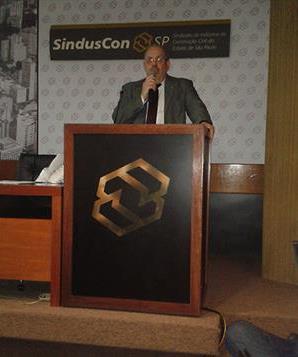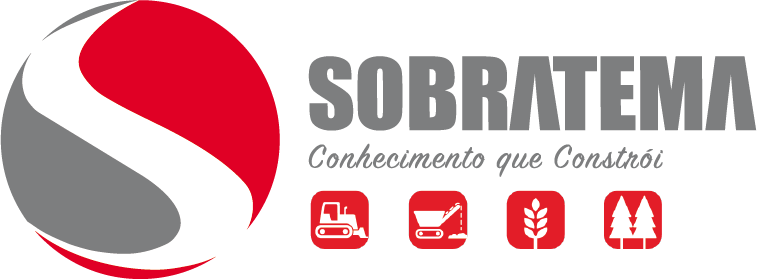Publicado em 13 de janeiro de 2014
Professional qualification may contribute to reduce the number of accidents with equipment in load hoisting and handling operation
Wilson de Mello Jr., director of Instituto Opus, gave a conference about professional qualification in the area

According to a study carried out by OSHA - Occupational Safety and Health Administration from the United States, one of the main causes of accidents involving cranes is human failure. These failures may occur in management and operation levels. “
To change this reality, one of the main actions to be developed is to qualify the professionals that work in the areas of planning, supervision and operation in works that use hoisting and handling equipment”, said Wilson de Mello Jr.—director of the Instituto Opus—during the Seminário Técnico Segurança e Saúde na Indústria da Construção (Technical Seminar on Health and Safety in Construction Industry), promoted by the Instituto Trabalho e Vida in December 11, in the auditorium of the Sinduscon-SP – Sindicato da Indústria da Construção Civil do Estado de São Paulo.
The director of the Instituto Opus informed that Brazil has a strong challenge in qualifying its labor for works with load handling. “In the last years, deadlines to conclude the works are being shortened, the construction methods involve more complexity in structure erection and assemblage and the loads to be lifted increased”, says him. “These situations demand more and more that the Rigger, the Rigging Supervisor and the Fastener Signaler have differentiated skills”, adds him.
During his conference, Mello Jr. listed the skills that a Rigger must have, such as, for example, knowledge of the crane specifications, ability of reading plants and blueprints, ability to do numerical calculations and others. He also explained what information has to be contained in a rigging plan: a clear definition of the area where the operation will be carried out, elements used to link crane and load, crane configuration, composition of gross load to be applied, etc.
According to Mello Jr., the related companies are working to improve the professional skills of their labor through specific internal training, use of simulators, development of courses in partnership with universities, evaluation and importation of labor for training.
Other important action that is being carried out is the certification of Rigger, Rigging Supervisor and Fastener Signaler. “Sobratema made a strategic agreement with Abendi – Associação Brasileira de Ensaios Não Destrutivos e Inspeção—that is a reference in the market of people certification—to have actual evaluation of such professionals, allowing their acknowledgement”, explains Mello Jr. “One of the features to ensure the certification of a Rigger is a technical graduation acknowledged by the CREA – Conselho Regional de Engenharia e Agronomia”, ends him.
More information may be obtained in the site: http://abendici.org.br/sobratema/

Av. Francisco Matarazzo, 404 Cj. 701/703 Água Branca - CEP 05001-000 São Paulo/SP
Telefone (11) 3662-4159
© Sobratema. A reprodução do conteúdo total ou parcial é autorizada, desde que citada a fonte. Política de privacidade


